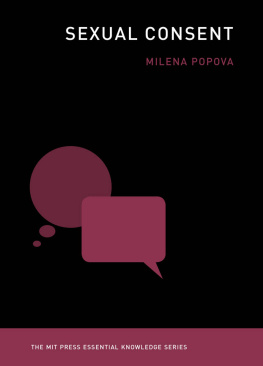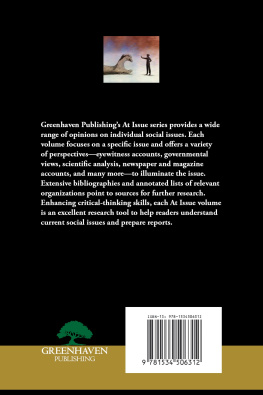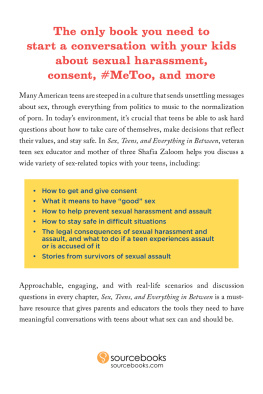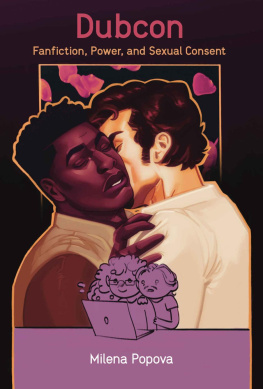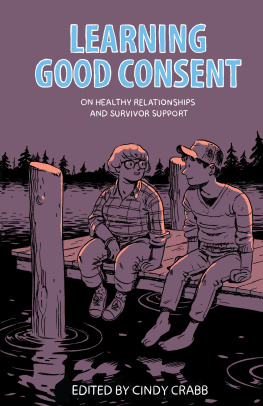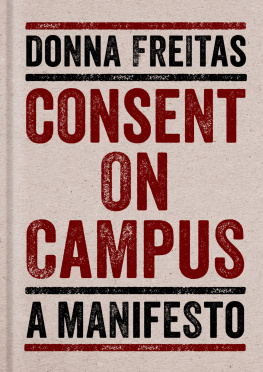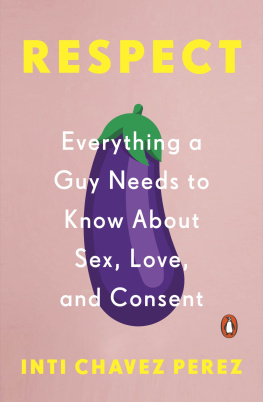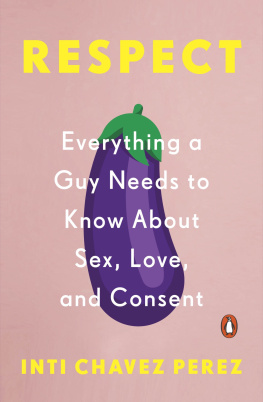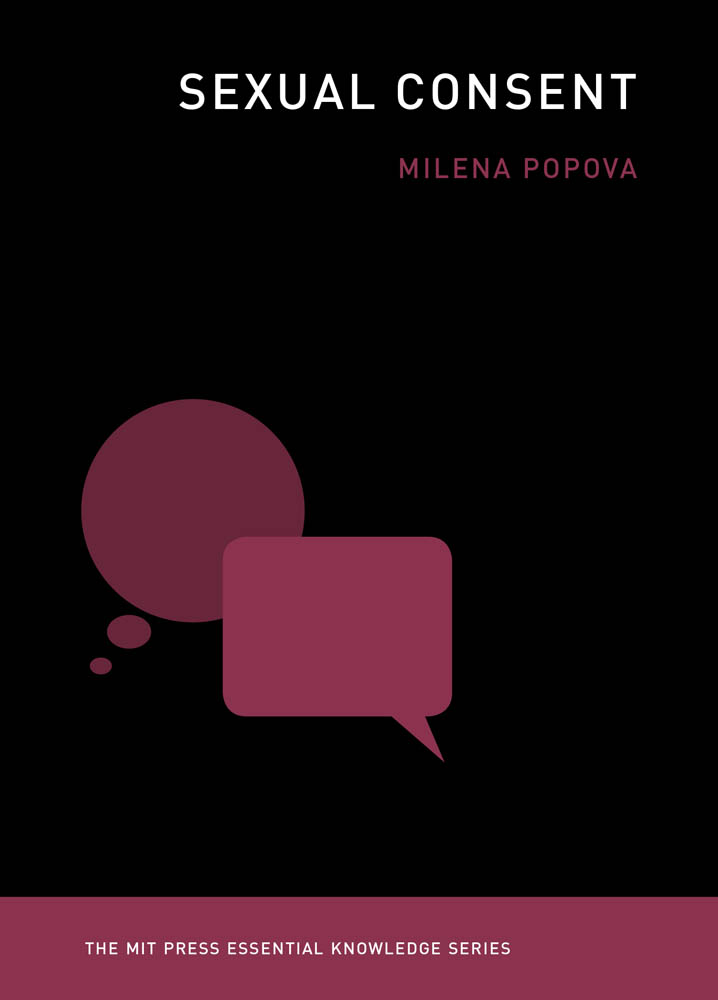
Sexual Consent
The MIT Press Essential Knowledge series
A complete list of the titles in this series appears at the back of this book.
Sexual Consent
Milena Popova
The MIT Press | Cambridge, Massachusetts | London, England
2019 Massachusetts Institute of Technology
This work is licensed under the Creative Commons licenses noted below. To view a copy of these licenses, visit creativecommons.org. Other than as provided by these licenses, no part of this book may be reproduced, transmitted, or displayed by any electronic or mechanical means without permission from the publisher or as permitted by law.
Effective June, 2020, this book will be subject to a CC-BY-NC-ND license.

All rights reserved. No part of this book may be reproduced in any form by any electronic or mechanical means (including photocopying, recording, or information storage and retrieval) without permission in writing from the publisher.
This book was set in Chaparral Pro by Toppan Best-set Premedia Limited. Printed and bound in the United States of America.
Library of Congress Cataloging-in-Publication Data is available.
ISBN: 978-0-262-53732-2
10 9 8 7 6 5 4 3 2 1
To those who have broken their silence.
And to those who, for whatever reason, have not been able to do so.
#MeToo
Contents
Series Foreword
The MIT Press Essential Knowledge series offers accessible, concise, beautifully produced pocket-size books on topics of current interest. Written by leading thinkers, the books in this series deliver expert overviews of subjects that range from the cultural and the historical to the scientific and the technical.
In todays era of instant information gratification, we have ready access to opinions, rationalizations, and superficial descriptions. Much harder to come by is the foundational knowledge that informs a principled understanding of the world. Essential Knowledge books fill that need. Synthesizing specialized subject matter for nonspecialists and engaging critical topics through fundamentals, each of these compact volumes offers readers a point of access to complex ideas.
Bruce Tidor
Professor of Biological Engineering and Computer Science
Massachusetts Institute of Technology
Preface
[Content note: this preface discusses sexual assault and consent violation.]
Shortly after I completed the manuscript for this book, the United States, for the second time in its history, knowingly put a man against whom there were credible allegations of sexual violence on its Supreme Court. The message is loud and clear: violating another human being, disregarding someones non-consent, does not preclude a manespecially a white manfrom holding one of the highest offices of the state. This is, of course, not shocking. After all, Donald Trump himself bragged about being a sexual predator, and that did not stop him from being elected president, either.
In light of such egregious abuses of power, it may be tempting to look at a book on sexual consent and wonder what good it does. It is not that powerful people, powerful men like Clarence Thomas, Brett Kavanaugh, and Donald Trump, do not understand that the women they are violating do not consent. Rather, they feel that their own desires and their power override any objections from women like Dr. Anita Hill, Dr. Christine Blasey Ford, and the countless unknown women Donald Trump has grabbed by the pussy. What good can a book like this, one that takes sexual consent as its starting point, do in the face of that?
The answer is that this book is about much more than consent. It is, at its core, about power: about the blatant abuses of it by men like Thomas, Trump, and Kavanaugh; but also about its more insidious operationsthrough ideas and culturethat create the rape-supportive environment we are living in. It is a book about peeling back the layers of this rape culture and dismantling the power structures it is enmeshed in (patriarchy, racism, white supremacy, cisnormativity, compulsory (hetero)sexuality, ableism, capitalism) until individual consent actually matters.
The #MeToo movement is the most visible expression of this goal to date. Brett Kavanaughs confirmation is a reminder of how far we have yet to go to achieve it. But it is also a reminder that it is a goal worth fighting for. And fight we will.
Acknowledgments
This book would not exist without the contributions and advice of a number of friends and colleagues. First and foremost, though, I would like to thank every single person who has ever shared their own #MeToo story, both before and after it became a hashtag; and every single person, too many to name, who has spoken out and written about rape culture, sexual violence, and consent, especially in the various creative, feminist, and activist communities I have found myself in over the years. Those are the people and spaces that have shaped my thinking on consent and inspired both my research and my activism.
I would like to thank my beta readers, Dominic DeCesare, Charlie Ann Page, and Paul Wady, for their insightful comments and for ensuring the book remained accessible to the widest audience possible.
Thank you to my editorial team at the MIT Press, Matt Browne and Anne-Marie Bono, for their support throughout this project. Thanks to my copy editor, Mary Bagg, for doing battle with the Chicago Manual of Style for me, and for engaging with the subject of the book as well as its style. Thank you to my production editor, Liz Agresta, for shepherding me and the book through the production process and going above and beyond in the face of technical glitches. Thank you also to the anonymous peer reviewers, who were both supportive and challenging, and whose contributions genuinely made this a better book.
I would also like to thank Anna J. Clutterbuck-Cook for letting me think out loud in her Twitter mentions; Dr. Jackie Barker for moral support, peer pressure, and judiciously applied cake; and Debbie Watkins for making some very helpful introductions.
Finally, I would like to thank my Patreon supporters for believing in my work and providing some of the financial means that enable me to focus on working toward a culture of consent.
1
Introduction
Content Note
It is difficult to have in-depth conversations about sexual consent without at least touching on issues of sexual violence, and this book is no exception. It includes in-depth discussions of rape culture and rape myths, as well as discussions (though no graphic description) of a range of ways in which consent can be violated or undermined. Please engage with this book in a way that is compassionate to yourself and others.
Living in a Rape Culture
Me too. Two simple words, stuck together to form a hashtag. If you were at all paying attention in late 2017 These figures do not even account for those who have experienced sexual abuse and victimization in childhood. This is not a new issue.
Please engage with this book in a way that is compassionate to yourself and others.
And yet, prior to autumn 2017, you may not have known. The victims of sexual violence continue to be stigmatized and even blamed for the violations they experience, while perpetrators are rarely held to account for their actions. Across a range of Western jurisdictions, conviction rates for rape have been hovering at somewhere between 5 and 10 percent of reported cases for years.
Next page
